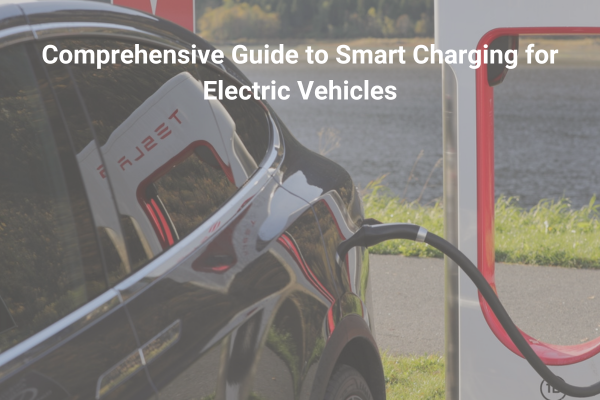Comprehensive Guide to Smart Charging for Electric Vehicles


In this blog, we will delve into the world of BMS and explore its profound impact on electric vehicle technology.
Enhancing Power and Acceleration
One of the key aspects of electric vehicle (EV) performance is the ability to deliver impressive power and acceleration. The Battery Management System (BMS) plays a crucial role in optimizing power delivery and enhancing the acceleration capabilities of EVs. In this section, we will explore how the BMS achieves these goals.
The BMS monitors and manages the power flow from the battery pack to the electric motor, ensuring efficient utilization of the stored energy. By continuously analyzing the state of charge (SOC) and voltage of each battery cell, the BMS can regulate the power output and distribute it evenly across the cells. This ensures that all cells contribute effectively to power delivery, maximizing the performance of the electric motor and enhancing acceleration.
Extending Driving Range
One of the key challenges for electric vehicles (EVs) is achieving an extended driving range on a single charge. The Battery Management System (BMS) plays a pivotal role in maximizing the range of EVs by effectively managing and optimizing the battery's energy usage. In this section, we will delve into how the BMS extends the driving range of electric vehicles.
The BMS employs various strategies to extend the driving range of an EV. Firstly, it monitors and balances the state of charge (SOC) of each individual battery cell within the battery pack. By ensuring that each cell is charged and discharged evenly, the BMS maximizes the overall energy capacity of the battery pack, thereby increasing the driving range.
Improving Battery Longevity
One of the key considerations for electric vehicle (EV) owners is the longevity of the vehicle's battery. The Battery Management System (BMS) plays a crucial role in extending the lifespan of EV batteries by implementing various techniques and safeguards. In this section, we will explore how the BMS contributes to improving battery longevity.
Firstly, the BMS monitors and regulates the state of charge (SOC) of each individual battery cell within the pack. By preventing overcharging and deep discharging, the BMS ensures that the battery operates within optimal voltage limits. This helps to prevent stress on the battery cells, prolonging their lifespan.
Enhancing Safety and Reliability
Safety and reliability are paramount considerations in the design and operation of electric vehicles (EVs). The Battery Management System (BMS) plays a critical role in ensuring the safety and reliability of EV batteries. In this section, we will explore how the BMS enhances these aspects.
First and foremost, the BMS monitors various parameters of the battery, such as voltage, temperature, and current, to detect any abnormalities. It continuously evaluates the battery's performance and health, providing real-time information to the driver or vehicle control systems. This proactive monitoring helps identify potential safety risks and enables prompt action to prevent hazardous situations.
Optimizing Energy Efficiency
Energy efficiency is a crucial factor in the widespread adoption and success of electric vehicles (EVs). With limited battery capacity, it becomes imperative to maximize the energy efficiency of the vehicle to extend its driving range and enhance overall performance. The Battery Management System (BMS) plays a pivotal role in optimizing energy efficiency in EVs. In this section, we will explore the key aspects of energy efficiency and how the BMS contributes to this optimization.
One of the primary functions of the BMS is state-of-charge management. It accurately monitors the battery's state of charge and provides this information to the vehicle's control system. By effectively managing the battery's charge level, the BMS ensures that the energy is utilized optimally, avoiding both overcharging and deep discharging, which can degrade the battery's performance and reduce efficiency.
In conclusion, the Battery Management System (BMS) plays a crucial role in optimizing energy efficiency in electric vehicles, contributing to their overall performance, range, and sustainability. By effectively managing the state of charge, regulating charge and discharge rates, implementing regenerative braking, and optimizing load management, the BMS ensures that energy is utilized efficiently and minimizes energy losses.
Together, let's drive towards a greener and more energy-efficient future with cleanenergyev.com cutting-edge BMS solutions. Upgrade your electric vehicle today and experience the revolution in energy optimization and performance that BMS technology brings.